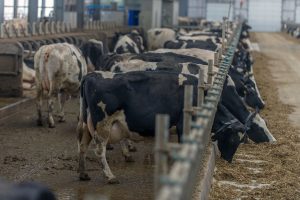
Conventional wisdom would suggest if a product is priced lower, consumers would be more willing to purchase it. But when it comes to plant-based, Europeans are bucking the trend.
Why doesn’t everyone swap out meat for plant-based alternatives? The answer to this question is not succinct, but one potential barrier could be price.
Price matters, reveals new EU-funded research out of Sweden’s Umeå University, but not in the way one may think.
Consumers less willing to buy cheaper alternatives
That consumers perceive plant-based alternatives to be more expensive than their conventional counterparts is nothing new. Indeed, affordability is thought to be one of the key drivers behind the plant-based slowdown.
According to alternative protein advocate the Good Food Institute, plant-based options are currently priced at a significant premium across categories.
But pricing plant-based alternatives lower than meat or milk products may not be the best way to encourage large-scale dietary shifts. A survey investigating behaviour and perceptions of more than 7,800 consumers, across nine European countries, has found that price matters, but lower is not always better.
The findings come from the EU-funded HealthFerm project, which is looking into pulse and cereal-based food fermentation innovations, alongside their health effects. Consumer perceptions of novel fermented foods are also being investigated.
HealthFerm is a €13.11m project funded by the Horizon Europe and the Swiss State Secretariat for Education, Research and Innovation. It’s made up of 23 partners – Umeå University, Chr Hansen (now Novonesis), Valio, Planted Foods, and Bridge2Food to name just a few – and will run for four years, from 2022 through to 2026.
European countries surveyed include Belgium, Denmark, Finland, France, Germany, Italy, Romania, and Switzerland.
In fact, consumers may be more willing to purchase a fermented plant-based meat, milk or yoghurt alternative when its price is the same as its animal-based counterpart than if its price is lower.
This finding is surprising, given that makers of plant-based alternatives often say they’re looking to undercut animal source-based products on price. Umeå-based researchers were also surprised to learn that if a meat, milk or yoghurt alternative were priced lower than its animal-based counterpart, respondents indicated a slightly lower likelihood of buying it.
Plant-based alternatives: Isn’t more affordable better?
Conventional wisdom would suggest that if a product is priced lower, consumers would be more willing to purchase it.

But this does not appear to be the case. As to why, HealthFerm partners have not yet conducted comprehensive research, but lead author Armando Perez-Cueto, who heads up Umeå University’s Research Group on Sustainable Food Transitions, suggested it could be linked to consumer perceptions of a food value.
In general, consumers understand that new foods and categories are in development, and are therefore willing to pay the price, he told FoodNavigator.
“I can assume that many may have some concerns about the quality of ‘cheap’, as we are flooded with cheap, unhealthy and environmentally unsustainable – often ultra-processed – products…”
Transitioning to ‘cheap’ products, in general, has consequences at both individual and population levels, he added.
Other barriers to plant-based adoption
Affordability is not actually the key driver influencing consumer food choices. According to the survey, the biggest factor is pleasurable sensory experience (87%), followed by perceived healthiness (81%), and then affordability (80%).
After affordability comes convenience and familiarity, suggesting more ‘self-centred’ motivation. “Altruist and environmental motives, although important, are less prominent,” noted the researchers.
Of all the possible barriers towards plant-based food consumption, five stood out as the most significant. Consumers don’t want to change their eating habits or routine; they feel they would need to eat more plant-based foods to ‘feel full’; they find plant-based foods inconvenient; and they’re unconvinced that plant-based foods are ‘tasty enough’.

How can industry work to overcome these barriers? The researchers suggest that overall, a ‘significant’ interest in plant-based fermented foods exists amongst European consumers. But overcoming barriers related to familiarity, convenience and taste is ‘essential’.
“A systems approach integrating consumer education, research and product development are needed to bridge the gap between current perceptions and the potential benefits of plant-based fermented foods.”
You can now read the most important #news on #eDairyNews #Whatsapp channels!!!
🇺🇸 eDairy News INGLÊS: https://whatsapp.com/channel/0029VaKsjzGDTkJyIN6hcP1K

























